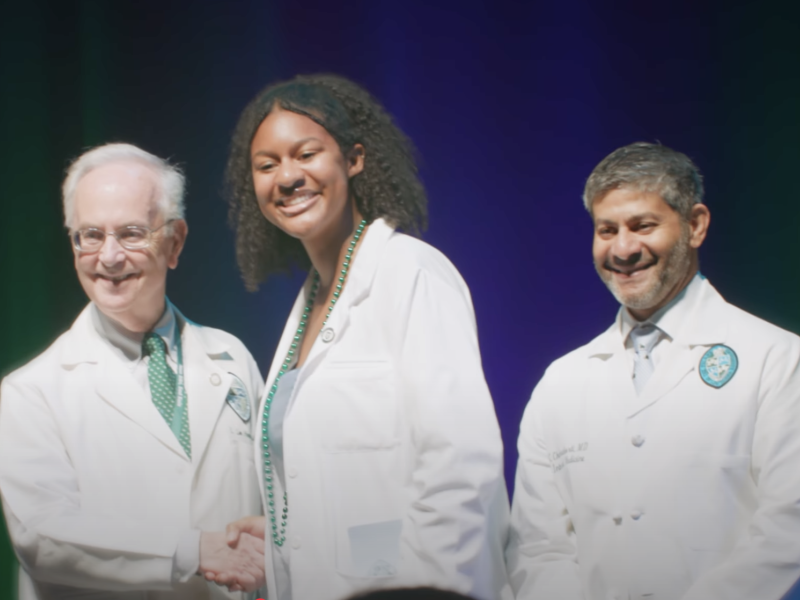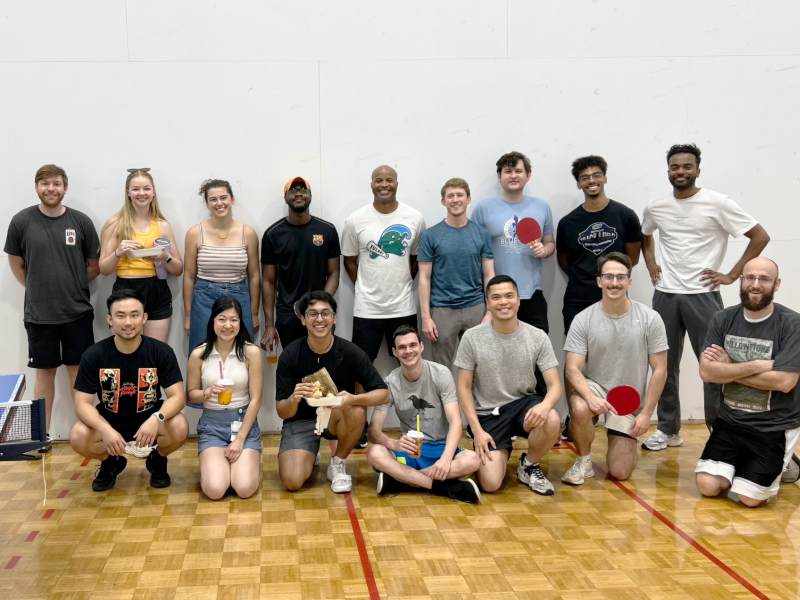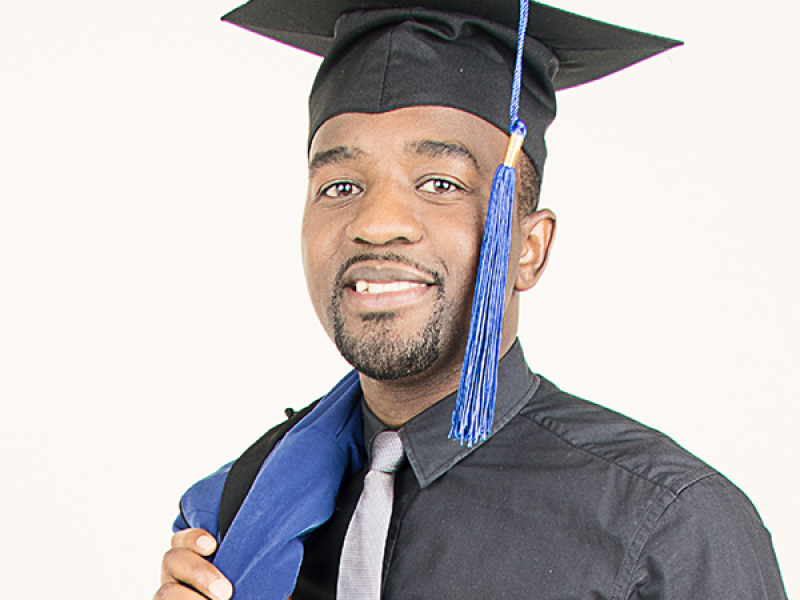MD Admissions
MD Admissions at Tulane Medicine
Welcome to Tulane University School of Medicine. We invite you to discover the array of educational, clinical and research opportunities offered here. Our environment provides you the opportunity to become a capable, compassionate physician who will provide high quality specialty or primary care locally, nationally and globally.
With more than 175 years of experience in medical education, Tulane is at the center of a unique, vibrant community of students, faculty, staff, partnerships, and affiliates located in the heart of downtown New Orleans.
Tulane University School of Medicine participates in the American Medical College Application Service (AMCAS). AMCAS applications are available online.
MD Application Info AMCAS Applications
Academic Programs
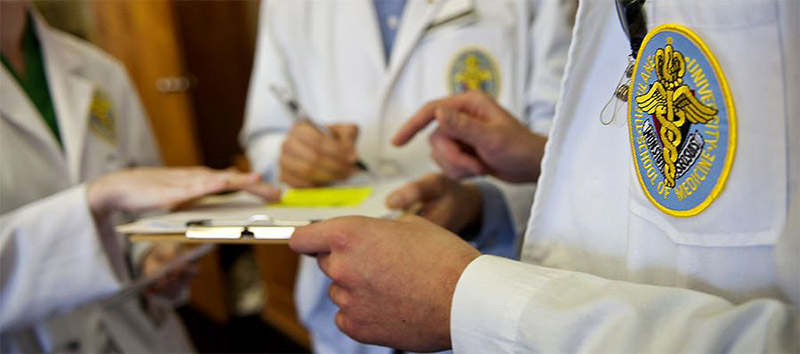
MD Degree
Tulane University School of Medicine offers a four-year Doctor of Medicine (MD) program that prepares students to become compassionate, skilled, and socially responsible physicians. With a strong foundation in both basic and clinical sciences, the curriculum emphasizes early clinical exposure, hands-on learning, and opportunities for research and community engagement. Students benefit from training in a diverse range of healthcare settings across New Orleans and beyond, equipping them to serve patients locally, nationally, and globally.

Programs
Tulane University School of Medicine offers a range of distinctive programs designed to support students with specific goals and interests—whether you're drawn to research, committed to serving rural communities, or planning your path to medicine as an undergraduate. From early assurance options to longitudinal research opportunities, these programs provide tailored support and clear pathways to help students thrive. Explore our offerings to see which program best aligns with your aspirations.
Eligibility
Does Tulane have required classes that I need to take before applying?
We have no prerequisites that are required, but in general you will need to have a solid background in the sciences, including: biology, physics, chemistry, and mathematics. When taking laboratories, in conjunction with these subjects, adds depth to the experience. Exposure to psychology, sociology, biochemistry, statistics, and studying a foreign language illustrate competencies that are pertinent to being a good physician. Of course, liberal arts courses that include writing are invaluable preparation for medical school and beyond.
Will my undergraduate and graduate GPAs be lookedat separately or combined?
If you have taken post baccalaureate courses, this course work will be calculated with your undergraduate grades and appear in your cumulative GPA with your AMCAS data. However, if you have taken courses in a graduate degree program, your GPA in that program will be separated from your undergraduate and post baccalaureate cumulative GPA.
Will low college grades hurt my application?
My early college grades are significantly lower than my most recent grades, including post baccalaureate courses. Is that a problem?
The admissions committee will look at the improvement a student makes over the course of their college career. An upward trend in the GPA will look better than a downward one. We will look very carefully at the specific courses taken in the early and later years as well.
Will Tulane accept AP credits?
We do not accept AP credits for transferring or replacing classes taken at Tulane University School of Medicine. All students must take Tulane’s required classes without exception. AP credits in undergrad are acceptable however; Tulane would like to see some upper level science classes taken as well. This is a recommendation.
Can I take premed courses at a community college?
Yes. Check to see that any community college you attend is regionally accredited.
Can I submit multiple MCAT scores?
Does Tulane allow multiple MCAT scores to be reported on the application?
Yes. Members of the admissions committee look at the highest score obtained. Many schools do not find multiple MCAT scores of use. Applicants should prepare with great care to take the MCAT examination.
Does Tulane offer a preparation course for the MCAT?
No, Tulane does not provide a prep course for the MCAT.
What is the oldest MCAT score that Tulane will accept?
We will accept MCAT scores as far back as three years prior to the application cycle. For example, to apply for the fall 2025 class, you will need to submit MCAT scores from at least 2022 (any month in that year).
Can I take the MCAT exam after September and still apply?
Will my application be reviewed if I take the MCAT examination after September?
All applications completed prior to our deadline of November 1 will be thoroughly reviewed. However, waiting for MCAT scores after September puts applicants at a disadvantage since interview slots are filled as applications are read and reviewed-so called "rolling admissions."
Do I have to submit my transcripts?
Does Tulane want copies of my transcripts?
No. All your course work will be verified by AMCAS and will appear on your AMCAS application. If you are offered admission, you must submit to us official, final transcripts from all schools attended prior to matriculation. Failure to do so will jeopardize your entry into medical school.
If your undergraduate degree is from a college or university in the United States or Canada, the college or university must be regionally accredited in order for you to qualify for admission to Tulane. For a list of accredited schools, please visit the website for the Council for Higher Education Accreditation. If your degree is from a college in the US or Canada that is not accredited, you are not eligible to apply to Tulane University School of Medicine.
Do I have to be a premed major to apply?
You do not have to be a premed or biology major to apply to Tulane. We admit many students with non-science majors. Good preparation in the sciences does make an applicant much more competitive.
Does it matter where I go to college?
Tulane accepts students from state and private schools all over the country. What you do and accomplish during your undergraduate career and beyond is the most important aspect that we consider. Evidence of rigor in course selection, discipline, work ethic, and leadership are most important. Also, as mentioned above, the school must be accredited regionally.
Will gap years hurt my application?
I have been out of college for a year or more. Will that be a problem for my being considered as an applicant?
No. Many of our students have taken a year or more off after college. Some worked full-time; others volunteered or worked abroad; and other applicants pursued interests outside of medicine. Some applicants feel that they need to take some post-bac science courses to strengthen or refresh their knowledge in the sciences. This is not required but consider that you will need to be able to submit strong, recent MCAT scores (taken within three years of matriculation) in order to be competitive.
Does Tulane Medicine have a post-baccalaureate program?
Does Tulane have a post-baccalaureate program to prepare students for medical school?
Tulane does not have a post-baccalaureate program designed to prepare students for medical school, but we have a number of one-year Masters Programs that may be appropriate. Please check the biomedical sciences program website for those programs and more information.
Admissions Timeline | ||
|---|---|---|
| Regular Decision | Early Decision | |
| Primary Application Deadline | October 1 | August 1 |
| Secondary Application Deadline | November 1 | August 1 |
| Interviews | August - March | |
| Acceptances | October 15 (rolling, thereafter) | October 1 |
| Deposit (to hold place) | April 30 | |
| Orientation Packet | May 30 | |
| Orientation | August 1, 2025 For more information, visit the orientation page. | |
| Classes Begin | August 4, 2025 | |
Why Tulane?

Discover Medical Education in the Heart of New Orleans
At Tulane University School of Medicine, you'll find a dynamic environment rich in educational, clinical, and research opportunities. We prepare compassionate physicians to provide high-quality care locally, nationally, and globally.
News
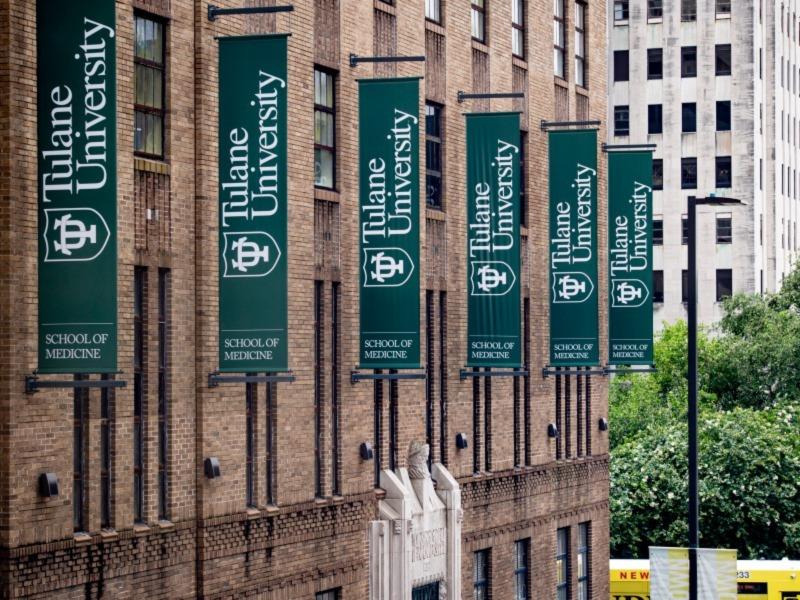
Contact Us
Office of Admissions and Student Affairs
Hours: Monday – Friday 8:00 a.m. – 4:00 p.m. (CST)
Phone: 504-988-5331
Email: medsch@tulane.edu
Biomedical Sciences Graduate Program
504-988-5226 | bms@tulane.edu
Office of Graduate Medical Education - Credentialing
504-988-5464 | TUSOMCredentialing@tulane.edu
